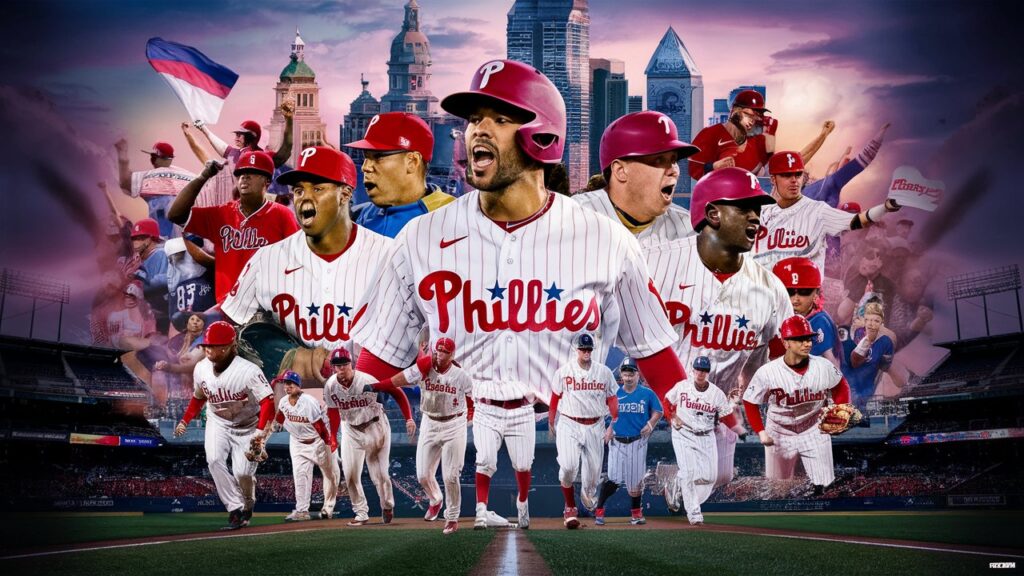Introduction
The Philadelphia Phillies, one of Major League Baseball’s oldest and most storied franchises, have carved a unique niche in the hearts of fans since their inception in 1883. As the longest-continuously operating, one-name, one-city franchise in American professional sports, the Phillies embody resilience, community, and an unyielding pursuit of greatness. From the heartbreaks of the “Phillie Phold” of 1964 to the euphoria of their 2008 World Series victory, the team’s journey is a tapestry of unforgettable moments, legendary players, and an unwavering bond with Philadelphia. This article delves into the Phillies’ rich history, iconic figures, pivotal milestones, and their evolving identity in modern baseball.
1. The Phillies’ Historical Journey: From Humble Beginnings to Modern Glory
The Phillies’ story began in 1883 as part of the National League’s expansion, originally named the Philadelphia Quakers. Renamed the “Phillies” in 1884, the team struggled in its early decades, earning the unfortunate distinction of being the first professional sports team to lose 10,000 games. However, the mid-20th century marked a turning point. The 1950 “Whiz Kids” team, led by Hall of Famer Robin Roberts, brought renewed hope by winning the National League pennant. Despite decades of ups and downs, the Phillies’ perseverance paid off in 1980 when they clinched their first World Series title, led by Mike Schmidt and Steve Carlton. This victory transformed the franchise’s identity, proving that even underdogs could rise to greatness.
2. Legendary Players Who Defined the Phillies’ Legacy
The Phillies’ history is studded with iconic athletes who became synonymous with excellence. Mike Schmidt, a three-time MVP and 12-time All-Star, revolutionized third base with his defensive prowess and 548 career home runs. Steve Carlton, a left-handed pitching maestro, dominated hitters in the 1970s and 80s, earning four Cy Young Awards. More recently, Chase Utley and Jimmy Rollins became the heartbeat of the 2008 championship team, blending grit and skill. Today, stars like Bryce Harper and Zack Wheeler carry the torch, ensuring the Phillies remain contenders. These players didn’t just excel on the field—they became cultural icons, embodying Philadelphia’s blue-collar spirit.
3. Memorable Moments in Phillies History
Few teams boast as many dramatic moments as the Phillies. The 1980 World Series win, capped by Tug McGraw’s iconic strikeout, ended a 97-year championship drought. The 1993 “Macho Row” team, featuring John Kruk and Lenny Dykstra, defied expectations with their charisma and underdog run to the World Series. The 2008 championship, highlighted by Brad Lidge’s perfect season and Cole Hamels’ dominance, remains a defining chapter. Even heartbreak has its place: the 1964 collapse, where the team lost a 6.5-game lead with 12 to play, remains a cautionary tale of resilience. Each moment, triumphant or tragic, reinforces the Phillies’ enduring narrative.
4. The Phillies’ Ballpark: Citizens Bank Park and Its Electric Atmosphere
Since 2004, Citizens Bank Park has been the Phillies’ home, blending modern amenities with nostalgic touches. Known for its passionate fanbase, the ballpark buzzes with energy, whether during a Harper home run or a late-inning rally. Features like Ashburn Alley—a tribute to Hall of Famer Richie Ashburn—and the Liberty Bell home run celebration connect past and present. The park’s intimate design ensures no seat is far from the action, fostering a communal experience that epitomizes Philadelphia’s love for its team.

5. The Phillies’ Community Impact: Philanthropy and Fan Engagement
Beyond baseball, the Phillies have championed community initiatives. The Phillies Charities organization supports youth education, health, and sports programs across the Delaware Valley. Players regularly participate in outreach, from hospital visits to youth clinics. The team’s annual Phillies Phestival raises millions for ALS research, honoring late broadcaster Dan Baker. This commitment to giving back cements the Phillies’ role as a civic pillar, transcending wins and losses.
6. The Modern Phillies: Building a Contender for the Future
Under owner John Middleton and President of Baseball Operations Dave Dombrowski, the Phillies are aggressively pursuing another championship. The 2022 World Series run, led by Harper’s MVP performance, reignited the fanbase’s hopes. Young talents like Alec Bohm and Bryson Stott complement veterans like Trea Turner and Kyle Schwarber, creating a balanced roster. With a focus on analytics and player development, the Phillies aim to sustain success in an increasingly competitive NL East.
Conclusion
The Philadelphia Phillies are more than a baseball team—they are a reflection of the city’s tenacity, pride, and capacity for reinvention. From the ashes of historic losses to the pinnacle of World Series glory, the Phillies’ journey resonates with anyone who believes in second acts. As the team continues to evolve, one truth remains: in Philadelphia, baseball isn’t just a game; it’s a way of life.
Frequently Asked Questions (FAQs)
Q: How many World Series have the Phillies won?
A: The Phillies have won two World Series titles: in 1980 (defeating the Kansas City Royals) and 2008 (beating the Tampa Bay Rays).
Q: Who is the Phillies’ all-time home run leader?
A: Mike Schmidt holds the record with 548 career home runs, the most in franchise history.
Q: What is the significance of the “Phillie Phanatic”?
A: The Phanatic, introduced in 1978, is the team’s beloved mascot. Known for his antics and green fur, he symbolizes the fun and irreverence of Phillies fandom.
Q: How can I buy tickets to a Phillies game?
A: Tickets are available via the Phillies’ official website, the Citizens Bank Park box office, or authorized resellers like MLB Ballpark App.
Q: Who are the Phillies’ biggest rivals?
A: The New York Mets and Atlanta Braves are historic rivals, with intense NL East matchups. The Pittsburgh Pirates also share a cross-state rivalry.
Q: What is the Phillies’ farm system ranked?
A: As of 2023, their farm system is mid-tier, though prospects like Andrew Painter and Mick Abel are highly touted for future impact.
This comprehensive exploration of the Phillies’ legacy celebrates their past, present, and future—a testament to a franchise forever intertwined with its city’s soul.
